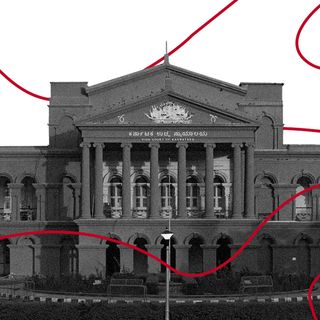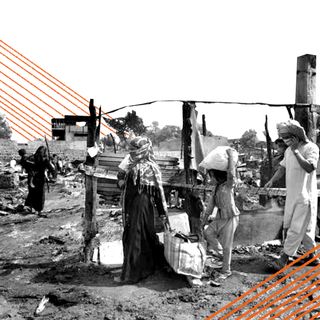More than 200 women gathered at the heart of Delhi on Monday to demand the scrapping of farm laws and advocate for better representation of women leaders in governance roles.
The protest was part of the “kisan sansad” (farmers’ parliament) in Jantar Mantar to contest the implementation of farm laws that negatively impact farmers. Notably, the role of women in the protest over the last one year has not only become a symbol of blurred gender lines in a space of resistance but also paves way to cultivate a separate identity of women leaders — in agriculture and beyond.
“Today’s ‘sansad’ will showcase the strength of women. Women can farm as well as run the country and today, everybody here is a politician,” said Subhashini Ali, vice-president of the All India Democratic Women’s Association, who moderated the all-women farmers’ parliament. The gathering also marked eight months of the farmers’ resistance.
The group passed two resolutions as part of their meet, according to The Tribune. The first looked at according more dignity and recognition to women farmers whose hard work and skills often go unnoticed. “Even though women contribute quite significantly to our farming, they do not receive the dignity, recognition and status that they ought to in the country… There should be well-thought-out measures adopted to increase the role and space for women in the Kisan Andolan,” it noted.
Adding to that, the second resolution framed the demand for 33% reservation for women in Parliament. Notably, a similar quota exists for women in local bodies like Panchayat and municipal body elections. “A Constitutional Amendment be made in this regard for giving due representation to women who constitute 50% of the population,” the group noted.
Related on The Swaddle:
For Women at the Farmers’ Protests in Delhi, the Farming Laws Aren’t the Only Issue
Previous studies have noted the benefits of reservation in Panchayati Raj institutions as a means to uplift women. The advantages are not only limited to gender empowerment but have been shown to have a positive association with development issues as well. According to one paper, women leaders tend to prefer priorities of the people in communities such as nutrition, health, schools, fair price shops. “Women elected under reservation invest more in public goods that are reflective of community priorities, such as drinking water,” noted in The Print.
More representation of women in Parliament and legislative bodies then does two things: it pushes us closer to gender parity in politics and other spheres and also becomes a symbol of respect and identity. “Their labor, hard work, skills and knowledge and their vitality should be taken on board by people’s movements and by our society,” the resolution noted.
At the heart of these demands remains the fight against farm laws, the defiance to which is inherently gendered. Earlier this year, the Supreme Court urged male farmers to send their women and children back, as if the ground of resistance was demarcated along gender lines.
“When women come to the protest, men help out with the household chores. It is this cooperation, and collaboration among everybody that has strengthened the movement,” Harinder Bindu, a farm leader, told The Tribune. The shift in gender roles also reframes the gender balance in agriculture work, debunking the myth that male farmers do the heavylifting.
The message extends beyond farmers’ protest. Kulwinder Kaur captures the essence of the meeting and the way forward as follows: “Women are no longer the same. Kalpana Chawla went to space, we have only come to Delhi. If women can become prime ministers, why can’t we fight our own battle?”




